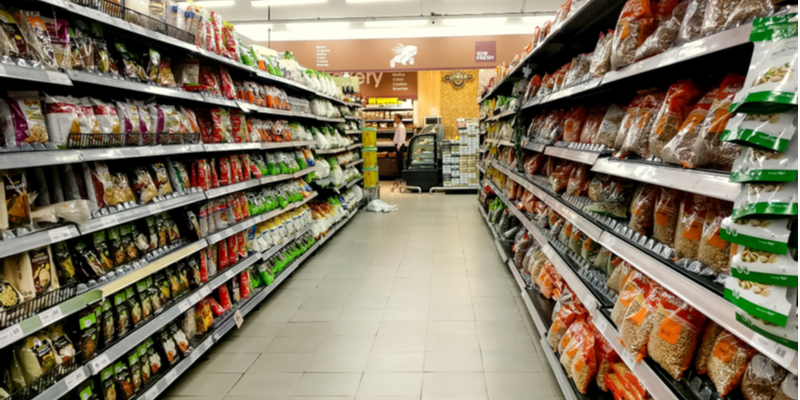Startup
Turning India’s logistics challenges into growth opportunities

A well-developed logistics sector is essential for accelerating India’s journey toward becoming a global manufacturing powerhouse, especially in light of strategic government initiatives like ‘Make in India.’
The sector’s recent expansion—fuelled by substantial government investment, enhanced infrastructure, and broader access to international markets—highlights its critical role in integrating India into the global supply chain.
As companies increasingly view the world as a unified production base and market, the logistics industry’s efficiency and competitiveness become key in employing these opportunities.
Harnessing India’s logistics challenges
As India strives to realise its ambitious economic goals, including achieving a GDP of $5.5 trillion by 2027, the transformation of its logistics sector emerges as a pressing imperative. However, this transformation is not without its challenges.
Infrastructure
One of the primary hurdles is India’s road infrastructure, which has long been a bottleneck for efficient logistics operations. The Indian government has recognised this and is taking decisive steps to modernise and expand the nation’s infrastructure.
Initiatives like the Bharatmala Pariyojana, aimed at developing 34,800 km of highways, are expected to enhance connectivity, reduce transit times, and optimise resource utilisation, thereby improving the overall efficiency of the logistics sector.
While infrastructure development is crucial, the future of the logistics sector lies in the integration of technology. When combined with the development of multimodal logistics parks that integrate road, rail, air, and waterways, these advancements will streamline logistics processes and significantly reduce costs and delays.
Together, these efforts will transform India’s logistics industry into a world-class network, driving the nation closer to its economic goals.
Skill development
Addressing the shortage of skilled manpower in India’s logistics sector requires a strategic focus on comprehensive skill development initiatives. Companies should implement structured training programmes that cover advanced logistics management, supply chain optimisation, and the latest technologies, such as warehouse automation, IoT, and data analytics.
Additionally, specialised courses in transportation management, inventory control, and green logistics practices can equip workers with the necessary skills to enhance operational efficiency and sustainability.
Partnering with educational institutions and industry experts to offer certification courses and apprenticeships can make the logistics sector more appealing, providing clear career progression paths and competitive wages.
By investing in these targeted training initiatives, India can not only alleviate the current workforce challenges but also position itself as a leader in global logistics, ready to meet future demands with a highly skilled and motivated workforce.
Technological adoption
The availability of advanced logistics management systems is a solid pillar in the industry, but the slow adoption of technology in the sector continues to hinder its full potential. Many companies still depend on outdated methods, resulting in poor asset utilisation, increased operational costs, and significant inefficiencies across the supply chain.
There is an urgent need for widespread adoption of digital technologies to overcome these challenges and drive growth. Real-time tracking, automated fleet management powered by advanced telematics, and data-driven inventory management through warehouse management systems are essential tools that can revolutionise the industry, optimising operations and enhancing overall efficiency.
Regulatory reforms
The complex regulatory environment in India presents significant challenges for the logistics sector, with issues such as land acquisition difficulties, inconsistent implementation of the Goods and Services Tax (GST), and a lack of coordination among various regulatory bodies.
These hurdles hamper efficient logistics operations and contribute to operational inefficiencies. However, these challenges also present a crucial opportunity for reform. By streamlining regulations, improving inter-agency coordination, and ensuring consistent GST enforcement, India can pave the way for a more robust and efficient logistics sector, ultimately enhancing its global competitiveness.
Accelerating logistics market growth
The logistics market in India is poised for significant growth, with projections indicating a compound annual growth rate (CAGR) of 10-12% in the coming years. This acceleration is driven by advancements in infrastructure, particularly improved road connectivity, which will enable the logistics sector to extend its reach across various industries.
By optimising supply chain efficiencies and reducing operational costs, these developments are set to enhance market competitiveness, positioning India as a global leader in logistics and transportation.
Vivek Juneja is the Founder and Managing Director of Varuna Group.
(Disclaimer: The views and opinions expressed in this article are those of the author and do not necessarily reflect the views of YourStory.)
Startup
Inflation continues to hit FMCG industry, urban growth expected to slow in H1/2025: Kantar report

Heading towards a slowdown amid inflationary pressures, the FMCG industry‘s volume growth during August-October this year has dropped to 4.3% from 6.4% in the year-ago period, research and insight firm Kantar said in a report.
Moreover, the FMCG volume growth was lower sequentially also as in the May-July period, this was 4.5%, according to Kantar’s latest FMCG Pulse report.
“We are in that last quarter, and the FMCG growth as of the quarter ending October is 4.3%. This number is a far cry from the 6.4% growth seen in Q/E Oct ’23, but is also a tad lower than 4.5% we saw in the last quarter, i.e. Q/E Jul ’24,” it said.
Volume growth in the urban market was at 4.5% in the August-October period, down from 6.9% in the same period of 2023.
However, the report added: “It is also true that a 4.5% growth following a near 7% growth in the previous term is extremely rare. In fact, over the last five years, this has only happened in the quarters of 2024.”
Therefore, technically urban is in a slowdown, though “it is far from a slump”.
About the inflation, the report said that per-household average quarterly spending crossed Rs 6,000 for the first time in the August-October period of 2022, and two years since then, spending has seen a 13% jump and is at Rs 6,761 during this quarter.
In May-July 2024, shoppers were paying Rs 133 per KG of FMCG on average. Just one quarter since then, shoppers are paying Rs 137 per KG, a jump of Rs 4 per KG in the latest August-October period.
“In recent years, this kind of growth in a single consecutive quarter was only seen during the initial months of the 2022 inflation period,” it said.
With no signs of food inflation relenting in the immediate future, where value growth rapidly draws away from volume growth for some more time, it’s hard to see urban (market) growing more rapidly than the current levels.
“We are expecting similar levels of growth to continue into the first half of the next year,” it said.
About the rural market, Kantar said it also seemed “underperforming” with just 4% growth, which is even slower than the 4.5% growth of the urban market in the August-October period.
However, it also added this was led by the mega category, wheat flour (atta).
“Non-atta rural FMCG growth is stable linearly and is growing seasonally,” it said.
Personal care categories have seen a strong jump from 2.8% to 5.4% in August-October, 2024, compared to a year ago. This is a good indicator of a positive market, and the extent of growth here gives us more confidence on the rural market, it added.
“Rural also has seen a near 11% CFPI (food price inflation), and this has resulted in a similar value growth differential here,” it said.
There are some concerns over rainfall for the rabi season, but a major stress is not expected, it said.
Startup
From IT engineer to health food innovator: Fit & Flex founder’s journey to building a sustainable brand

As India’s health food market continues to evolve, entrepreneurs face the dual challenge of creating nutritious and appealing products for the Indian palate. Understanding this delicate balance and the complexities of building a sustainable food brand in today’s competitive market requires more than just a good product; it demands mindful entrepreneurship. This was the focus of a recent webinar in the iStart Inspire series, where Parthik Patel, Founder of Fit & Flex, revealed how his journey from IT engineering to revolutionising the health food market exemplifies mindful entrepreneurship.
The webinar, presented by iStart Rajasthan—one of India’s largest startup initiatives—in partnership with YourStory, offered valuable insights into building a sustainable health food brand.
Finding the right market gap
Patel’s entrepreneurial journey began unconventionally in the cotton and chemical industries. His passion for fitness and healthy eating, combined with identifying a gap in the Indian market for better-tasting, nutritious cereals and snacks, led him to establish Fit & Flex in 2019.
“Indian consumers are ready to compromise on health, but they are not ready to compromise on taste,” Patel emphasised, highlighting the importance of understanding market dynamics.
The company faced significant hurdles early on, with COVID-19 hitting just months after launch. Despite having to shut down their factory for four months and managing a team of 60-70 people during the pandemic, Fit & Flex demonstrated remarkable resilience. It expanded to 12 cities and 22,000 stores within three months post-lockdown, showing impressive adaptability in crisis.
Innovation at the core
What sets Fit & Flex apart is its commitment to innovation. The company utilises proprietary baking technology that ensures products remain crunchy longer than conventional alternatives. “We are known for innovation,” said Patel, mentioning unique variants like mango and coconut flavours not commonly found in the Indian market.
Despite facing pressure to reduce costs, Patel maintained his commitment to quality ingredients. He shared how the company continues to use premium components like freeze-dried fruits, which cost ten times more than conventional alternatives, to maintain product integrity. This dedication to quality has helped build a loyal customer base, with retention rates of 33% in general trade and modern trade channels.
Appearing on Shark Tank India proved transformative for the brand, resulting in an 11x increase in sales for several weeks. “Being on national television is massive,” said Patel, explaining how the exposure helped increase brand visibility not just in India but internationally.
Keys to success for aspiring entrepreneurs
During the Q&A session, Patel offered valuable advice for aspiring entrepreneurs in the health food space. He emphasised three critical factors: product-market fit, pricing strategy, and patience. “You need to have uniqueness in your product,” he advised, stressing that entrepreneurs should focus on the basics rather than trying to do everything at once. He cautioned against the common mindset of expecting quick success, noting that “branding takes 10-15 years”.
For customer retention, he recommended a multi-channel approach combining WhatsApp marketing, email campaigns, and telemarketing, achieving a 22% retention rate online and 33% in offline channels.
Looking ahead, Patel sees enormous potential in India’s packaged food industry, particularly with the increasing workforce participation of women. Fit & Flex continues to innovate, recently launching ready-to-eat oats and protein puffs, while maintaining monthly growth rates of 20-30%.
This webinar was part of iStart Rajasthan’s comprehensive startup support programme, which has registered over 5,100 startups, including more than 1,700 women-led ventures, and sanctioned over Rs 35 crore in investments since its launch in 2017. Through initiatives like these, iStart continues to provide valuable mentorship, access to market and procurement opportunities up to Rs 25 lakhs to entrepreneurs across India.
Startup
Workplace solutions provider IndiQube files DRHP, eyes Rs 850 Cr IPO

Workplace solutions company IndiQube has filed its draft red herring prospectus (DRHP) with markets regulator SEBI to raise funds through an initial public offering (IPO).
The company’s IPO consists of a fresh issue of equity shares of up to Rs 750 crore and an offer for sale of equity shares of up to Rs 100 crore by the promoter-selling shareholders, Rishi Das and Meghna Agarwal.
IndiQube intends to use Rs 462.6 crore of the raised proceeds towards funding capital expenditures related to establishing new centres and Rs 100 crore towards the repayment of certain borrowings availed by the company.
Founded in 2015, the company currently manages around 103 centres across 13 cities and has a clientele roster ranging from Indian corporates as well as startups such as NoBroker, Redbus, upGrad.
The company reported a total income of Rs 867.6 crore in FY24 compared to Rs 601.2 crore in FY23.
Interestingly, for the three months ended June 30, 2024, the company derived 91.59% of its revenue from operations from centers in Bengaluru, Pune, and Chennai collectively. This trend was observed in FY24, FY23, and FY22.
IndiQube has become the latest company to file for an IPO after several startups such as EV-maker Ola Electric and food delivery platform Swiggy went public in 2024. Several companies including Ather Energy and omnichannel jewellery brand Bluestone has also filed draft papers to go public.
The company’s DRHP also comes at a time when flexible workspaces are becoming a rising trend in the commercial office market as hybrid working models become more common.
The Book Running Lead Managers to the offer are ICICI Securities Limited and JM Financial Limited and the equity shares are proposed to be listed on BSE and NSE.
-

 Startup Stories1 year ago
Startup Stories1 year agoWhy Millennials, GenZs Are Riding The Investment Tech Wave In India
-

 Startup Stories1 year ago
Startup Stories1 year agoStartups That Caught Our Eyes In September 2023
-

 Startup Stories1 year ago
Startup Stories1 year agoHow Raaho Is Using Tech To Transform India’s Fragmented Commercial Trucking
-

 Startup Stories1 year ago
Startup Stories1 year agoMeet The 10 Indian Startup Gems In The Indian Jewellery Industry’s Crown
-

 Crptocurrency10 months ago
Crptocurrency10 months agoLither is Making Crypto Safe, Fun, and Profitable for Everyone!
-

 Startup Stories1 year ago
Startup Stories1 year agoWOW Skin Science’s Blueprint For Breaking Through In The $783 Bn BPC Segment
-

 Startup Stories1 year ago
Startup Stories1 year agoHow Volt Money Is Unlocking The Value Of Mutual Funds With Secured Lending
-

 E-commerce1 year ago
E-commerce1 year agoTop Online Couponing Trends To Watch Out For In 2016




